RIYADH: When you think of cities around the world famous for their art, Riyadh does not instantly spring to mind, but with Saudi Arabia’s cultural revolution beginning in earnest, all that will change.
Last month, King Salman announced four projects for the capital, one of which is Riyadh Art, which will feature the distribution of more than 1,000 pieces of art in public spaces throughout the city by the end of 2023.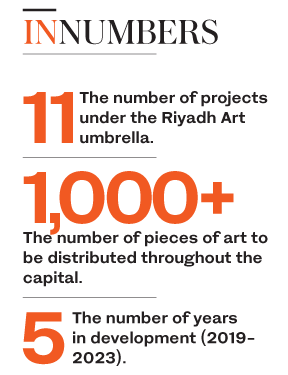
Saudi Arabia “has a rich archaeological, architectural and cultural history, as well as an increasingly dynamic contemporary art scene,” said Edward Gibbs, Sotheby’s chairman for the Middle East and India.
“Pioneering projects such as … the open-air Sculpture Museum in Jeddah paved the way by showing the tangible social benefits of displaying contemporary art in an urban setting,” he added.
“Riyadh Art is an exciting new initiative which promises to promote new dialogues, forging conversations between the next generation of Saudi artists and the wider community,” he said.
“We look forward to seeing the expanded artistic and creative perspectives that Riyadh Art is sure to bring to the capital city, as well as to other centers of creativity in the Kingdom.”
In the 1950s, Saudi artists took inspiration from European Renaissance paintings. In the 1960s, the first art scholarships were awarded to young Saudis, giving them the opportunity to travel abroad.
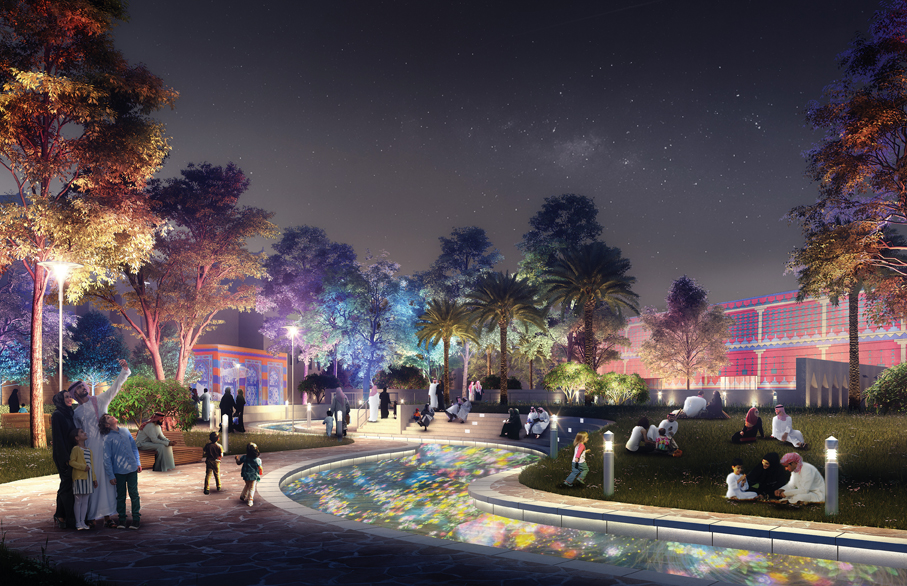
The Noor Festival will showcase interactive artworks based on illumination. (Supplied photo)
Futurism, impressionism, cubism and abstract art all found their way into local art until around 1979. But then came the Sahwa, an ideological movement against Western cultural influence.
Almost overnight, things in Saudi Arabia changed. An austere, conservative cloud settled over the country, choking the art scene.
But it has been revived significantly in recent years, including the formation of the Saudi Art Council in 2014.
The idea of art being a necessity rather than a luxury was starting to return to Saudi Arabia, and the concept of being an artist was starting to look like more than just a hobby again.
There was also the foundation of Art Jameel, created by the family of the late entrepreneur, visionary and art lover Abdul Latif Jameel, which actively works to support the art community in Saudi Arabia.
Riyadh Art is one of the biggest and most ambitious of the Vision 2030 projects to date. Featuring offerings from both local and international artists, the project will establish Riyadh as a major arts hub.
According to details seen exclusively by Arab News, Art Riyadh will comprise 11 sub-projects.
Several of them will be permanent, stationary locations for local artists. The Urban Art Lab will consist of galleries featuring well-known artists in city squares, which will encourage interaction between artists and citizens.
The Joyous Gardens will be playgrounds in neighborhood gardens designed by famous artists.
Jewels of Riyadh will consist of a collection of valuable artworks that will be installed at tourist destinations.
The Welcoming Gateways, at Riyadh’s entrances, will feature creative designs and unique architecture.
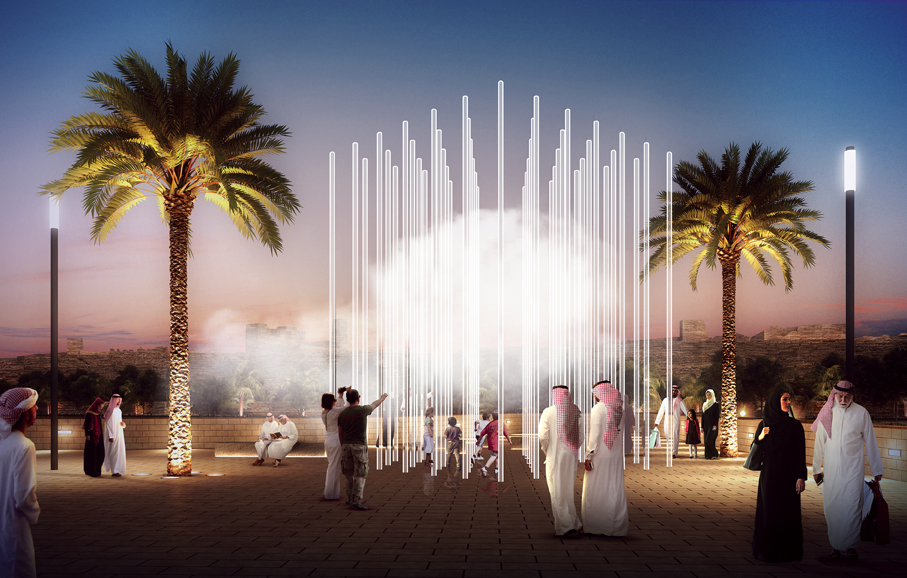
The Jewels of Riyadh project will consist of valuable artworks installed at tourist destinations. (Supplied photo)
Art on the Move will include sculptures at important intersections across the city. Art in Transit will reflect the opening of the new Metro, scheduled to begin operation before the end of 2019, with artworks in metro and bus stations.
Urban Flow will consist of pedestrian bridges designed by artists to strengthen the city’s interconnectivity and encourage citizens to walk.
Garden City will be a garden for art, containing monuments and sculptures in a permanent location in the heart of Riyadh.
The annual Noor Festival will showcase interactive artworks based on illumination, held in one of the local parks. Perhaps most ambitiously, the Riyadh Landmark — XXL will distinguish the city.
Details are being kept tightly under wraps for now, but an announcement is expected soon. According to Riyadh Art representatives, the project’s design and study are being finalized, implementation is expected to start in the second half of 2019, and completion is expected at the end of 2023.
Local artists are excited about the prospects. “Everything about this project excites me: The revival of art and culture in Saudi Arabia, the potential psychological impact it could have on people’s mood, the enrichment it could bring to people’s lives. I’d mind being stuck in Riyadh traffic a lot less if I had something beautiful to look at,” sculptor Talal Altukhaes told Arab News.
“We have so many talented, brilliant, artistic Saudi youths who’ve been waiting for an opportunity like this for a long time.”
Artist Ameera Sheikh, known to her tens of thousands of fans online as “Mikandii,” told Arab News that the project will “give so many people the chance to shine and to showcase their talents.”
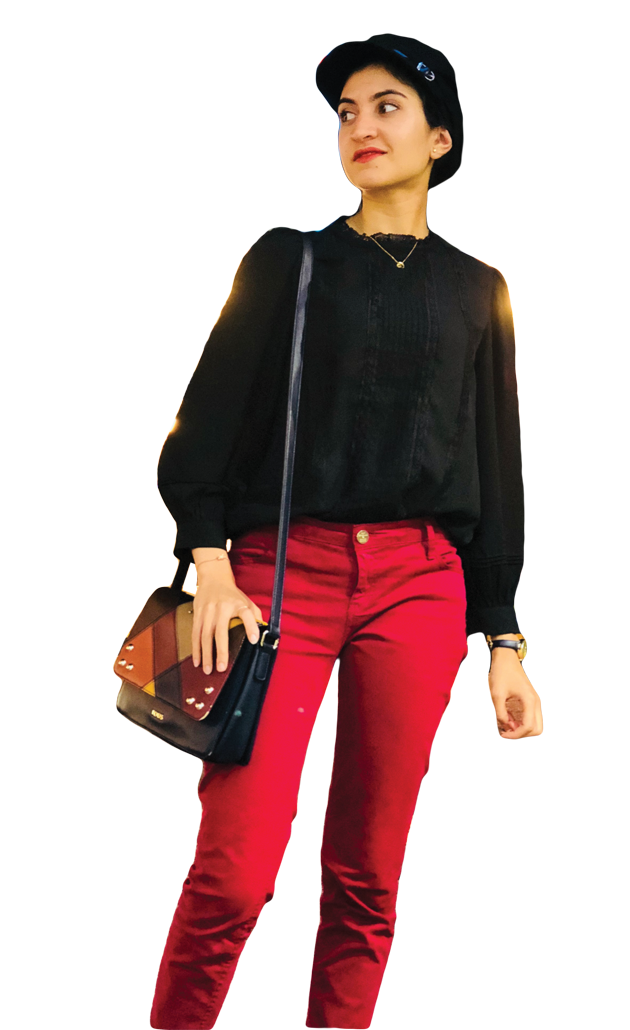
Artist Ameera Sheikh. (Supplied photo)
She said: “In the past, it has been much more difficult for artists to find support in Saudi Arabia, but things are changing, and I’m so happy to see it.”
Sheikh, who works fulltime as a freelance artist, added: “In the past, we haven’t had enough opportunities for Saudi artists to really maximize their own potential. In Jeddah, where I live, there are galleries opening and more spaces dedicated to art, but most of the ones I’ve seen have been temporary. It’s very nice to see something more permanent being made available.”
Aljohara Jeje, a Dutch artist living in Saudi Arabia who splits her time between Jeddah and Riyadh, is well-known in the Jeddah art community, and her work has been displayed in some of the city’s most prestigious galleries.
Her most recent work, a poster of Crown Prince Mohammed bin Salman, has gained critical acclaim in Jeddah’s art scene.
“Riyadh Art sounds magnificent,” Jeje told Arab News. “Riyadh is an amazing place, so vibrant. It’s a city that’s growing exponentially, and so is the interest in it. So I welcome the activity and look forward to seeing Riyadh Art.”
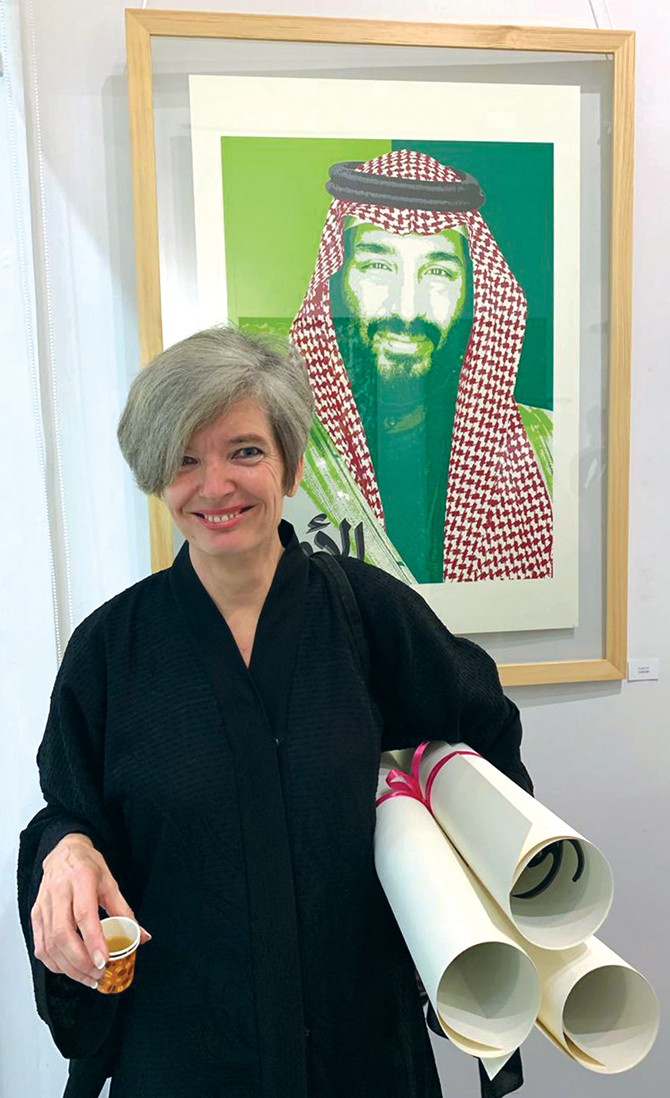
Dutch artist Aljohara Jeje and her poster of the Saudi crown prince. (Supplied photo)
She said the project will help Riyadh catch up to Jeddah’s art scene, adding: “I believe that Jeddah can become the next global art hub, and Riyadh is lagging a little bit behind in that respect. Jeddah can easily, within a few years, be on par with some of the larger, globally recognized art cities such as Berlin or Shanghai.”
Jeje expressed hope that Riyadh Art will make people more receptive to art as a cultural necessity.
“Art is for everyone. It needs to be available to the public, and people need to get used to it as a part of life,” she said.
“You don’t have to like all of it. You can develop tastes and preferences over time. But art needs to be made available for everyone so we can get used to it.”
Participation criteria are being finalized, and details will be announced in the second half of the year, Riyadh Art organizers told Arab News.





































